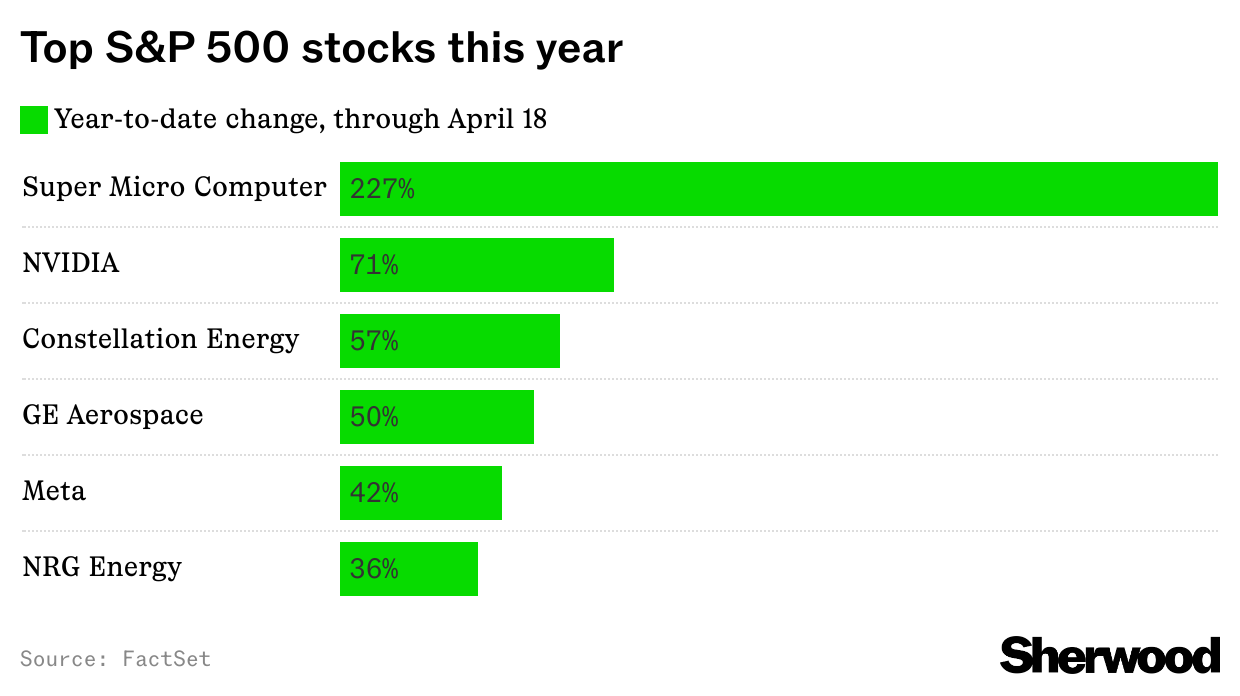Hey Snackers,
It’s corn… bassador. 7-year-old Tariq went viral for his delightful appreciation of simple corn cobs, in a song that lives rent-free in America’s head. Now he’s the official corn-bassador of South Dakota, one of the biggest kernel-producing states. Spread corn, not scorn.
Stocks surged last week, snapping a three-week red streak. The techy Nasdaq led gains, climbing 4.1%. On Thursday, J. Powell reiterated a hawkish ’flation-fighting stance (pain = still the name of the game). Meanwhile, the European Central Bank hiked interest rates by 75 bps.
Paradox
The housing paradox: as rates rain on property’s parade, Americans are losing all around
Zillow-scrolling has us pillow-sobbing… The US has come down with a case of housing blues: Americans are either sad because they can’t buy a house or sad because they did buy a house. Nearly three in four homebuyers have at least one regret related to their recent home purchase. Meanwhile, wannabe buyers are getting priced out. Let’s unpack that:
- Homeowners are watching their net worth fall as soaring mortgage rates soften demand. Home prices dropped in July for the first time in 32 months as rates doubled from January.
- #1 regret: overpaying. Buyers paid a median of $65K over asking price for their new cribs.
- Meanwhile: Wannabe buyers are far from their white-picket-fence dreams because prices are still significantly elevated (blame: pandemic housing boom).
“Squid Game” vibes… No one wins in this market. Prospective buyers lose: home prices in June were 18% higher than a year earlier, a historically steep jump (plus: mortgage rates are wild). Owners lose too: home prices dipped 0.77% in July — sounds negligible, actually the largest monthly decline since 2011.
- The housing-price drop could get worse since the Fed is determined to unleash ’flation-fighting “pain” (read: higher interest rates).
- 275K mortgage holders would fall underwater if their homes lost 5% of their current value. Over 80% of those borrowers bought homes in the first half of this year (aka: housing peak).
It’s a chill, but likely not a crash… Homeowners are way more cash flush now than they were when the housing market crashed in ’07 (flashback: prices plunged and millions owed more than their homes were worth). Mortgage leverage is at a record low, and losing some paper value on a home won’t harm most Americans. While housing inventory is rising at a record pace, home supply is still relatively tight, so prices likely won’t crash.
Zoom Out
Stories we’re watching...
Looks like a microwave on wheels… actually a robo burrito delivery (#roburrito). Last week Uber Eats struck a 10-year deal with self-driving startup Nuro to deliver food starting this year. Nuro was the first to score street-legal status for driverless deliveries, and it has deals with Kroger, Walmart, and Domino’s. In June, Grubhub launched autonomous delivery at some colleges. Driverless drop-offs can ease labor shortages and curb emissions. With US online food deliveries set to grow 10% by 2026, self-driving could go mainstream through the kitchen.
This cap's not for wearing… but winter is coming. After Russia’s Gazprom indefinitely shut down natural-gas flows to Europe to compel the West to lift sanctions, Europeans are fearing a worst-case scenario winter energy crisis. Think: scarce supply, sky-high heating costs. Now: the EU proposed a cap on Russian gas prices, the new British PM Liz Truss announced a cap on home and business energy bills, and Germany announced a roughly $65B plan to offset soaring energy costs. The measures are meant to protect taxpayers from massive heating bills.
Events
Coming up this week...
Ethereum holds its breath… The second-largest cryptocurrency is expected to undergo a major overhaul — dubbed the Merge — this Wednesday, and it's the talk of crypto town. If all goes to plan (fingers = crossed), ethereum's backbone will switch from "proof of work" (old, energy-hungry) to "proof of stake" (new, energy-efficient). But ahead of ETH's big day: experts are warning of scams and miners are talking hard forks. Ethereum's future depends on the Merge going smoothly — only then will everyone involved breathe easy.
$700 Balenciaga blazer… just for the night. Last quarter, Rent the Runway doubled its sales as the return of IRL events boosted its biz. RTR offers clothes from 750+ designers for rent or purchase. But as #flation weighs on wallets, RTR is doubling down on secondhand fashion — which is forecast to double to $77B in sales by 2027. In July, Saks Off 5th and RTR partnered to offer pre-owned designer pieces at stores and online. We’ll see how resale retail is paying off when RTR reports today. FYI: the stock’s down 46% this year.
ICYMI
Last week's highlights...
- Spin: Buzzy unicorn IPOs may be fading, but “spin offerings” are gaining traction. Volkswagen plans to take Porsche public in what could be Europe’s biggest IPO since 1999. VW could raise $10B in the listing.
- BTClean: The White House dropped a report on crypto mining's environmental impact. Carrot: President Biden wants to work with the industry to go greener. Stick: If that fails, executive action (think: regulation) is on the table.
- Putinflation: Europe is racing to fill gas-storage facilities to keep homes warm this winter after Russia-controlled Gazprom indefinitely shut the key Nord Stream pipeline, blaming Western sanctions.
What else we’re Snackin’
- Influence: TikTok fame is big business. Forbes’ inaugural top-creators list highlights 50 social stars (think: Charli D’Amelio and Khaby Lame) who earned $570M last year influencing their combined 1.9B followers.
- Life: Average life expectancy in America has fallen to about 76 years — the lowest level since 1996. Covid, gun violence, and chronic illness are some of the causes for the US falling behind countries like China.
- Coins: China's new digital currency (#digi-yuan) could help it break its reliance on the dominant US dollar. As China positions the digi yuan for international use, countries could use it to evade American sanctions.
This Week
- Monday: Earnings expected from Oracle, Planet Labs, and Rent the Runway
- Tuesday: Earnings expected from Core & Main
- Wednesday: Earnings expected from Li-Cycle Holdings
- Thursday: Hispanic Heritage Month begins. Jobless claims. Earnings expected from Adobe
- Friday: Earnings expected from Manchester United
Authors of this Snacks own: bitcoin and ethereum and shares of Walmart and Uber
ID: 2419124
.png)

